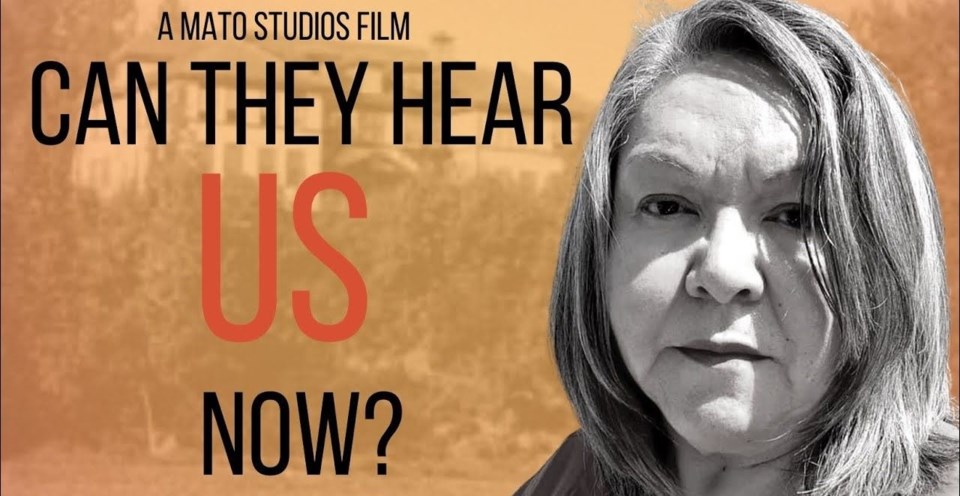Can They Hear US Now? is the question asked in the documentary showcasing residential school survivor Sonya Rock and she said the answer is finally yes.
“People are finally hearing us,” Rock said. And that gives her a lot of hope.
Having the courage to speak up and share her story, Rock has made it her life’s work to be an educator with her intention set as nurturer and protector of Indigenous children in primary grades, especially Kindergarten and Grade 1, in three different school districts throughout BC.
She wanted to be part of breaking the intergenerational trauma cycle she saw first-hand growing up in the Gitxsan Nation, Frog Clan, and within her own 10-sibling family.
“I chose a career in education because I wanted to be there for the children,” Rock said, who taught in Hazelton and Lytton. “I wanted to make sure what I went through, the pain and horror of residential school, would not happen to them. That they felt secure and loved in learning. I wanted to give them a fighting chance. So I really fought hard to have my children – because they were all my children – to have their educational experience be a happy one and that they left my classroom prepared for the next stages of their education.”
Rock’s doc, Can They Hear US Now?, produced by Mato Studio Films, will be presented during ‘Ut’loo Noye Khunni – Weaving Words Celebration 2024 at UNBC on Friday, March 8, in Room 7-2112 at 11 a.m. The documentary is about 40 minutes long and there will be an opportunity for Rock to speak afterwards and answer questions.
“I am so proud of the documentary and just haven’t had the opportunity to share it with people until now,” Rock said. “To be there and speak on it is so wonderful. I look forward to being able to do this more and I am hoping this might open doors to have this opportunity more often so that I can share it with more people. I would like other organizations to invite me to speak to this documentary.”
The people who suffered through what she went through are still here and the families are still suffering from intergenerational trauma from what grandparents and parents suffered in the residential schools, Rock said.
“I see as an educator that this has been passed down to the children and the grandchildren and you see the affects in the young parents,” Rock said. “That trauma has not stopped. It’s ongoing. Those of us who survived and continue to live are still suffering from that trauma. Our loved ones that you see on the streets now are survivors suffering from intergenerational trauma. I would like people to feel compassion for those who are out there. It’s not their choice to be there. This is the long-term affects of what has happened to our people. People are suffering. They turn to alcohol and drugs to numb the pain.”
With support, Rock said, people can find their way to healing and eventually will thrive.
“Those of us who have struggled through this are succeeding in life,” Rock. “It was a long journey for me. It’s going to be 34 years of sobriety for me on May 20. Although I have gone through this horrific experience in residential school I still made it through and I will be graduating with my Masters in May. My story is every First Nations person’s story. I want them to see it and to know and understand although you face these struggles every day of your life – you face racism, poverty, addictions, violence – you can get out of it. You can get through it and you, too, can be successful in life.”
For more information about the Weaving Words Celebration visit UNBC Weaving Words Celebration.
To view the documentary on Youtube about Rock’s experience at residential school visit Can They Hear US Now? documentary.

.png;w=120;h=80;mode=crop)

